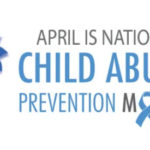(NAPSI)—February is not only American Heart Month, but also Age-Related Macular Degeneration Awareness Month. Interestingly, if you are like the majority of Americans, heart disease and eye disease run in your family, and a growing body of research suggests that eye and heart health are related. The latest study suggests that people with a specific form of age-related macular degeneration (AMD) are at significant risk for cardiovascular disease and stroke.
According to the ophthalmologists at Eye Care Vision Associates (ECVA), AMD is the leading cause of visual impairment and blindness in people over 65 years old. There are two types of AMD. The type called dry AMD happens when the central area of the retina, called the macula, becomes damaged from the formation of small yellow cholesterol deposits under the retina. These deposits deprive the retina of blood and oxygen, leading to vision loss. The type of deposits the researchers believe are linked to heart disease are called subretinal drusenoid deposits.
Most importantly, the new study adds to the list of several health conditions an eye exam may help detect. Because blood vessels and nerves in the eyes are reflective of the rest of the body, medical conditions such as stroke, heart disease, some cancers, and diabetes are sometimes first diagnosed by an ophthalmologist during a routine eye exam.
ECVA wants you to know some important advice that can protect both your eyes and your heart.
Eat well. A heart-healthy diet full of leafy greens and colorful fruits is good for the eyes. Studies show foods rich in vitamins C and E, zinc, lutein, zeaxanthin, and omega-3 fatty acids can lower the risk of certain eye diseases, including macular degeneration, cataracts, and dry eye.
Exercise. The American Heart Association recommends 30 minutes of exercise daily. For eye health, the science shows regular exercise can protect your vision and, if you already have an eye disease, it can help you manage it better.
Know your family history. Early detection is key. Many leading causes of blindness run in families, such as macular degeneration and glaucoma. Know your family history and share it with your ophthalmologist at your next eye exam.
Get routine eye exams. Seeing an ophthalmologist could do more than save your eyesight, it can also save your life. Recently, when one patient went to get his eyes checked, his ophthalmologist detected signs of a blood clot. Thanks to a thorough eye exam, the patient was treated and avoided a potential stroke. Both the American Academy of Ophthalmology and ECVA recommend that all adults receive a comprehensive eye exam by age 40, and every year or two after age 65.
ECVA wants Individuals aged 65 or older who are concerned about their risk of eye disease, but who cannot afford the cost of an eye exam, to know that they may be eligible for an exam, often at no out-of-pocket cost, through the American Academy of Ophthalmology’s EyeCare America® program. To see if you or a loved one qualifies, visit EyeCare America at www.aao.org/eyecare-america .












